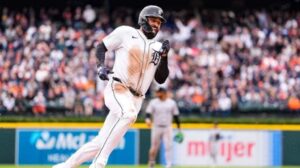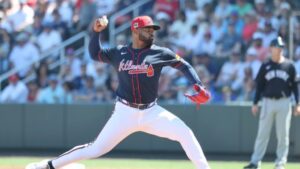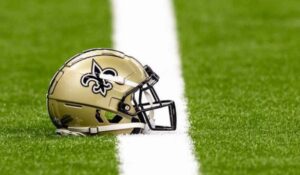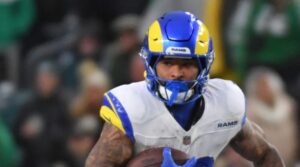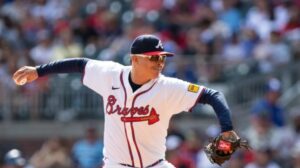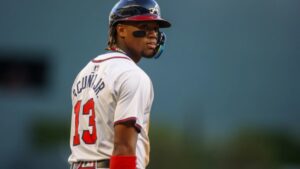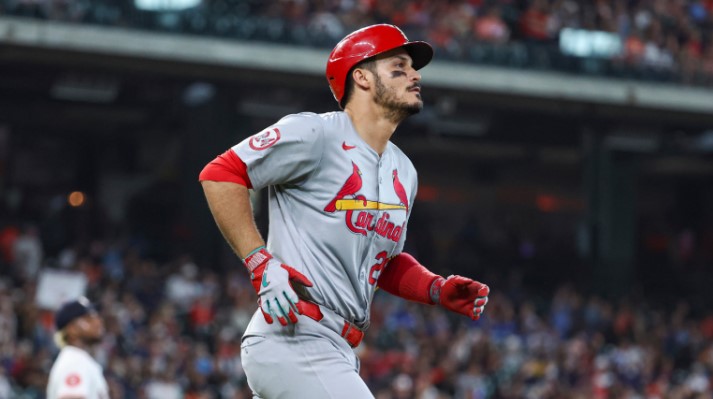
On Saturday, reports emerged that the Houston Astros are once again interested in acquiring third baseman Nolan Arenado from the St. Louis Cardinals. The Astros had previously attempted to trade for Arenado in December, but the deal fell apart when he invoked his no-trade clause. It’s still unclear whether Arenado has changed his stance on joining the Astros or if the team is simply revisiting the same possibility. Should the two sides agree on a trade this time, the Astros would likely position Arenado at third base, moving longtime second baseman Jose Altuve to left field, while Isaac Paredes, who was part of the Kyle Tucker trade with the Chicago Cubs, would shift to second base. This scenario is reminiscent of earlier attempts to re-sign franchise player Alex Bregman, who ultimately joined the Boston Red Sox.
However, the question arises whether the Astros should even pursue Arenado. Let’s explore this with several key points to consider.
1. Risky Profile and Cost
Acquiring Arenado would be an easy decision if he were still the dominant player he once was. Unfortunately, that’s not the case. As Arenado approaches his 34th birthday, his recent performance has been subpar, including one of his worst offensive seasons in recent memory. Underlying issues make it hard to believe he will regain his previous form. His average exit velocity dropped significantly, and he recorded his lowest hard-hit percentage of his career. In addition, his bat speed has also diminished, which affects his ability to make powerful contact. As a player ages, it’s natural to lose some quick-twitch ability, especially entering the mid-30s. Arenado has never been a high-walk player, so any further decline in his slugging power could make him a much less valuable offensive asset.
Despite these concerns, Arenado’s defense at third base remains exceptional, and he’s been productive enough overall, earning approximately 2.5 Wins Above Replacement (WAR) in each of the past two seasons. However, any further offensive decline could push him into a position where he’s barely league-average at best. With three years and $74 million remaining on his contract, this financial commitment—especially if the Cardinals retain some salary—raises doubts about whether it’s worth investing in him.
2. Internal Complications
Adding Arenado would also complicate the Astros’ internal roster dynamics. If Arenado is acquired, the Astros would need to move Altuve to left field, which seems likely regardless of the trade, but it would also force Paredes into second base, a position where he has not been successful defensively. The team would likely face some early struggles as players adjust to their new positions, potentially costing them in terms of defensive consistency.
Additionally, Arenado’s arrival would limit playing time and development opportunities for several of the Astros’ prospects. Young players like outfielder Jacob Melton and infielders Brice Matthews, Cam Smith, and Shay Whitcomb could find their paths to the major leagues obstructed. Veterans like Mauricio Dubón and Brendan Rodgers, a recent signing, would also face reduced roles, despite solid performances in the previous season. Having too many talented players and not enough spots is a good problem to have, but it complicates matters when the player you’re bringing in is no longer an elite performer. The decision would be much easier if Arenado were still playing at his peak level, but that’s uncertain, leading to tougher decisions for the Astros.
3. Sign of a Fractured Approach
There’s a sense that the Astros may have a fractured approach within their front office regarding how to manage their roster. While it’s normal for different opinions to exist in any organization, the Astros’ recent moves have shown a seeming disconnect between their long-term and short-term strategies.
The team has been one of the most successful franchises in baseball over the past decade, but with an aging core and a draft strategy focused on late-round picks, the Astros’ window for contending might be closing. In December, they traded impending free agent Kyle Tucker, signaling an awareness that they needed to start thinking about the future. Yet, at the same time, they’ve been chasing aging players like Arenado, along with other win-now moves, such as spending big on a closer (Josh Hader) and pursuing first baseman Christian Walker. These moves could indicate mixed signals about the Astros’ priorities.
The trade for Tucker appeared to be a step toward planning for the future, but adding players like Arenado could undermine that shift in focus. If the Astros are trying to balance their current championship window with future needs, the financial and roster limitations that come with acquiring an aging player like Arenado might not be the wisest choice. If the front office continues to chase after win-now players while also addressing long-term concerns, they may face a difficult time maximizing both present and future success.
Ultimately, whether the Astros go after Arenado or not, and whether they successfully acquire him, remains to be seen. If Arenado declines to waive his no-trade clause again, this might save the Astros from making a decision they may later regret. However, even if they do pull off the trade, the implications for the team’s roster and future direction are significant, and time will tell if it was the right move.
